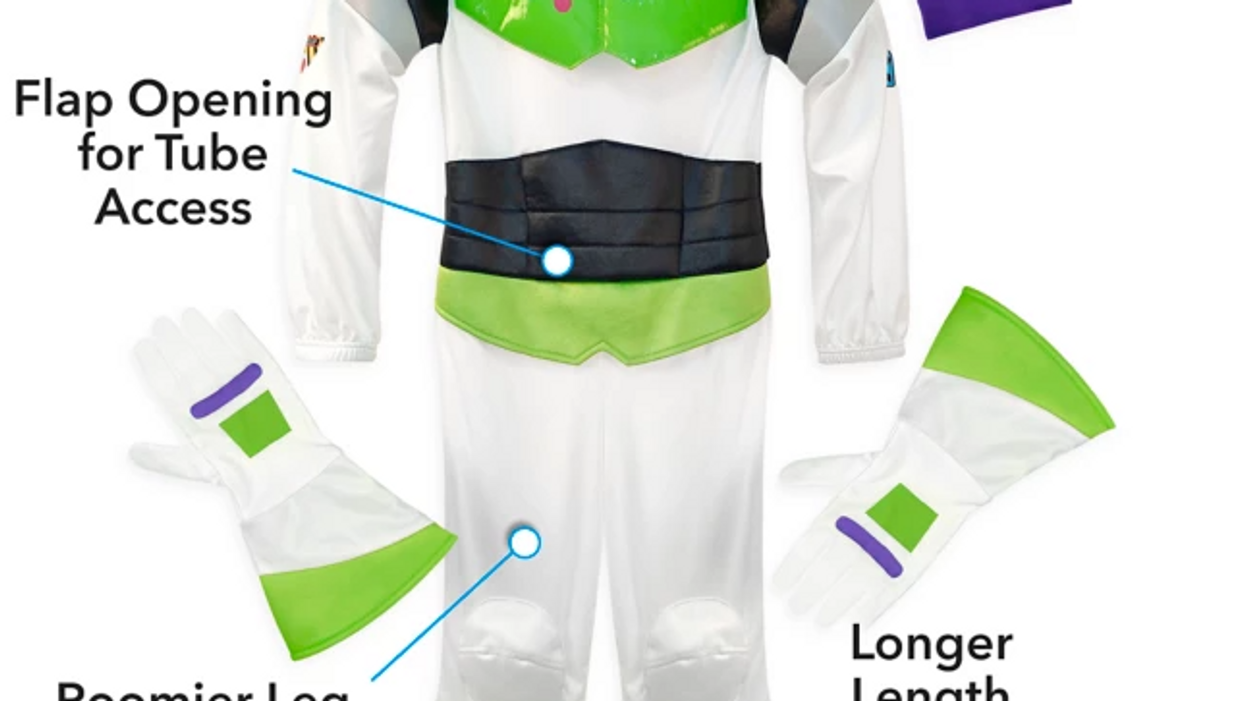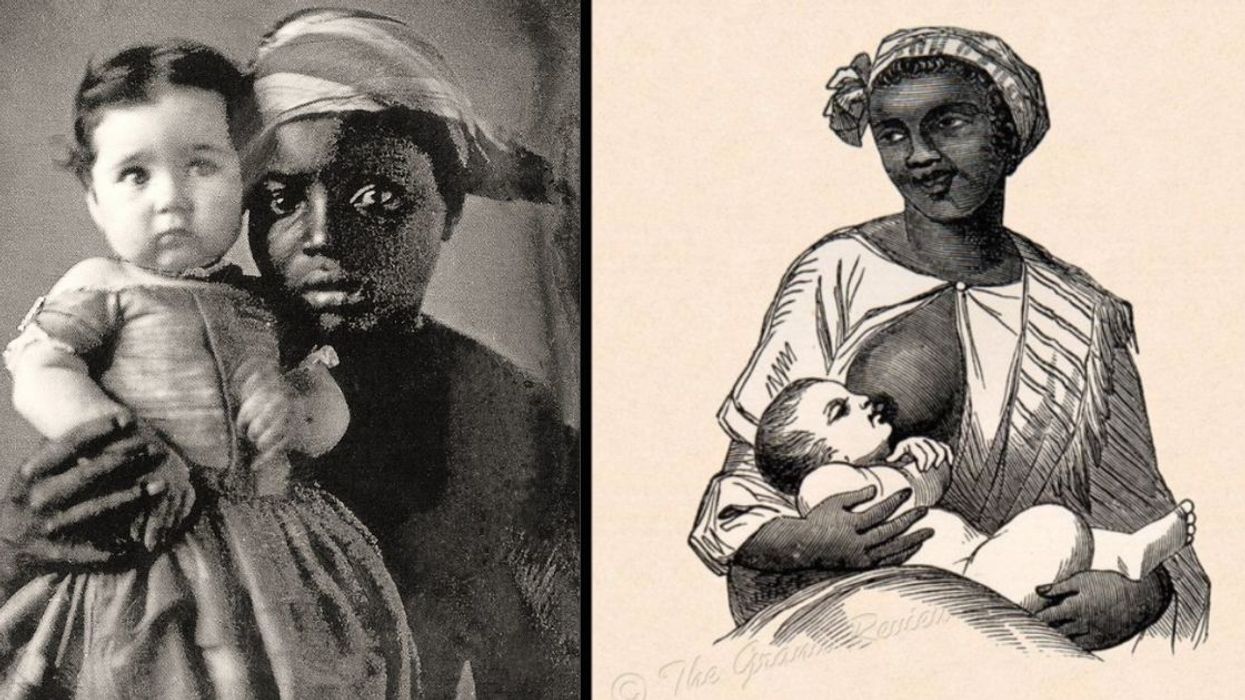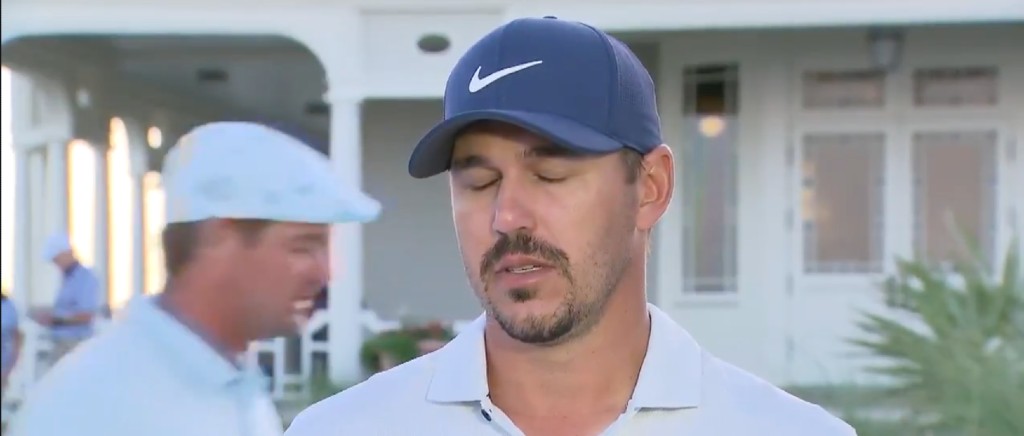
Category: Worldwide
Category Added in a WPeMatico Campaign

This article originally appeared on 8/28/19
It’s Black Breastfeeding Week, a week set aside in the U.S. to celebrate and encourage Black breastfeeding parents.
Some may wonder why such a week is necessary. After all, that’s a pretty narrow niche, isn’t it? Aren’t Black moms included in all breastfeeding awareness and education campaigns? Is there something special about Black people breastfeeding?
The answer is yes, there is something unique about Black breastfeeding. Several somethings, actually, but one reason for Black Breastfeeding Week is summed up in a gut-wrenching poem by feminist author Hess Love.
“I wish I dried up
I wish every drop of my milk slipped passed those pink lips and nourished the ground
Where the bones lay
Of my babies
Starved while I feed their murderer
I wish I dried up
So the missus babies would dry up too
And be brittle
So I could crumble them to dust
Return them to the ground
Where all children of my bosom lay equal”
– Hess Love
As Parenting Decolonized points out, Black parents have only been able to raise their own children for less than 160 years in America. That’s basically two 80-year-old grandmothers living back to back. For most of U.S. history, generation upon generation upon generation of Black families were torn apart. Black mothers were often not allowed to nourish and raise their own babies, but were forced to nourish and raise the babies of their enslavers. For most of U.S. history, Black breastfeeding meant wet nursing white babies, sometimes at the expense of a Black woman’s own children.
And when I say “most of U.S. history,” I mean that literally. Slavery was the standard for close to 250 years on our soil, compared to the 154 years since slavery was legally abolished (and almost 100 of those years still allowed legal discrimination). The impact of that reality doesn’t just disappear because slavery ended and the Civil Rights Act passed.
However, the historical effects stemming from slavery are not the only reason Black Breastfeeding Week is important. Black mothers face higher maternal and infant mortality rates in the U.S., and according to the CDC, there are “substantial” differences in breastfeeding rates between Black mothers and white mothers.
Add in cultural and social issues surrounding Black women’s bodies, ongoing negative perceptions of breastfeeding, and a lack of representation in the lactation support field, and the answer to the question “Why Black Breastfeeding Week?” becomes apparent.
As Rochaun Meadows-Fernandez wrote on Scary Mommy,
“National Breastfeeding Month, which is observed the full month of August, addresses a few of the social concerns associated with breastfeeding, such as the mental exhaustion, the anatomical challenges, and the lingering stigma. But it doesn’t address the ways each of these uniquely impact Black women.
The discourse that developed from Black Breastfeeding Week met me where ‘regular’ breastfeeding concerns left me struggling. It was a resource that tackled what it meant to nurse in public when your body is already hypersexualized. Black women and girls have some of the highest reports of sexual assault, as society seems to believe our bodies are community property- a message taught during slavery.”
I know there will be people in the comments saying, “Slavery ended more than 100 years ago. Get over it.” They don’t understand the far-reaching effects of historical trauma. They don’t understand that centuries of violent oppression followed by another century of blatant, legal discrimination impacts generations, and that the racism at the heart of all of that is still present in the health statistics of Black mothers and infants in America.
This is why Black Breastfeeding Week is needed. For more information, see www.blackbreastfeedingweek.org.
We’re now just a few days away from Happier Than Ever: A Love Letter To Los Angeles, Billie Eilish’s hybrid animated/live action concert film. That drops on September 3, and ahead of then, Eilish has shared a great advance look at it with her performance of “Oxytocin.” It sets the bar high for what the full film will be like, as it shows off stunning on-stage footage and the marriage between it and the lovely animation.
Eilish previously told Spotify of the song, “‘Oxytocin’ is a fun one. That’s probably one of my favorites. We had all these songs and I was like, the only thing we’re missing is the song that’s purposefully gonna be insane live. And we did ‘Oxytocin.’ Oh, my God, it was the most satisfying thing in the world. We would stand up and jump around and see what felt right. I was also just going through crazy feelings at the time, too. You can understand those if you listen to the lyrics.”
Of the film, Eilish previously said, “Disney is incredibly iconic, so to collaborate on something like this is a huge honor. To be able to present my album in this way and dedicate it to the city that I love and grew up in is so exciting to me. I hope you love it.”
Watch the “Oxytocin” performance above.

Bryson DeChambeau is golf’s greatest villain, as the world’s 7th ranked player is about as polarizing a figure as the sport has ever seen. Once best known for being the young, nerdy science guy on Tour, DeChambeau is now on the leading edge of golf’s obsession with length, bulking up with one goal in mind: hit the golf ball farther than anyone ever.
The results are hard to argue with, as he’s won twice on this extended wraparound season and enters the Tour Championship second in FedEx Cup points. However, he has also ruffled feathers along the way, becoming a posterchild for slow play and his grating personality has led to a well-publicized feud with Brooks Koepka — which Bryson contributed to early on in his bulking phase by taking shots at Brooks’ physique. Brooks has made his stance on Bryson very clear, as he’s not a fan of The Big Golfer, and their beef has led to fans picking sides, with a lopsided amount of support for Koepka.
Over recent months, hecklers have taken to yelling “Brooksy” at DeChambeau, which on the sliding scale of sports heckles is fairly innocuous, even if childish and silly. Bryson at first shrugged it off, even trying to embrace it and say it doesn’t bother him, it has ultimately worn on him. The culmination came on Sunday, when after he lost a six-hole playoff to Patrick Cantlay to the delight of the Baltimore area fans at Caves Valley, he finally snapped back at a fan, telling him to “get the f*ck out” after the latest “Brooksy” taunt (via ESPN’s Kevin Van Valkenburg).
Two days later, the PGA Tour has decided enough is enough and will now kick fans out who yell “Brooksy” at Bryson, which seems like a rather steep punishment for a non-vulgar taunt.
Yelling or saying, “Brooksie” to Bryson DeChambeau will now be considered disrespectful from now on can result in expulsion from a tournament. This directly from Commissioner Jay Monahan. It’s become an issue of being disrespectful to the players and the game.
— Michael Collins (@ESPNCaddie) August 31, 2021
All of this is part of golf’s battle with itself, as they want so badly to expand their fanbase to a younger generation while also maintaining the unwritten rules of etiquette that have long been a part of the game within the country club crowd. It’s hard to imagine this doing much beyond leading fans to finding something new to yell at Bryson — or fans just accepting an ejection from a tournament once they’ve enjoyed enough beverages.

